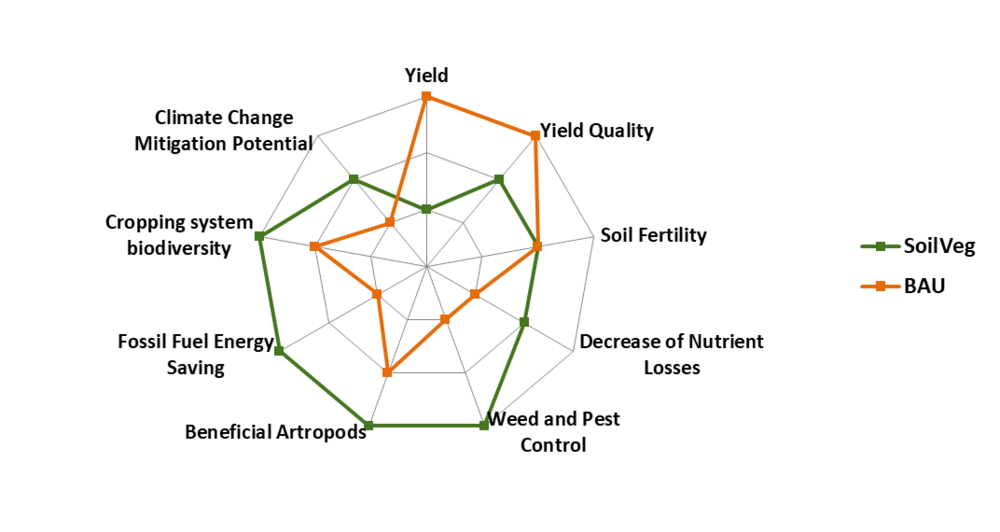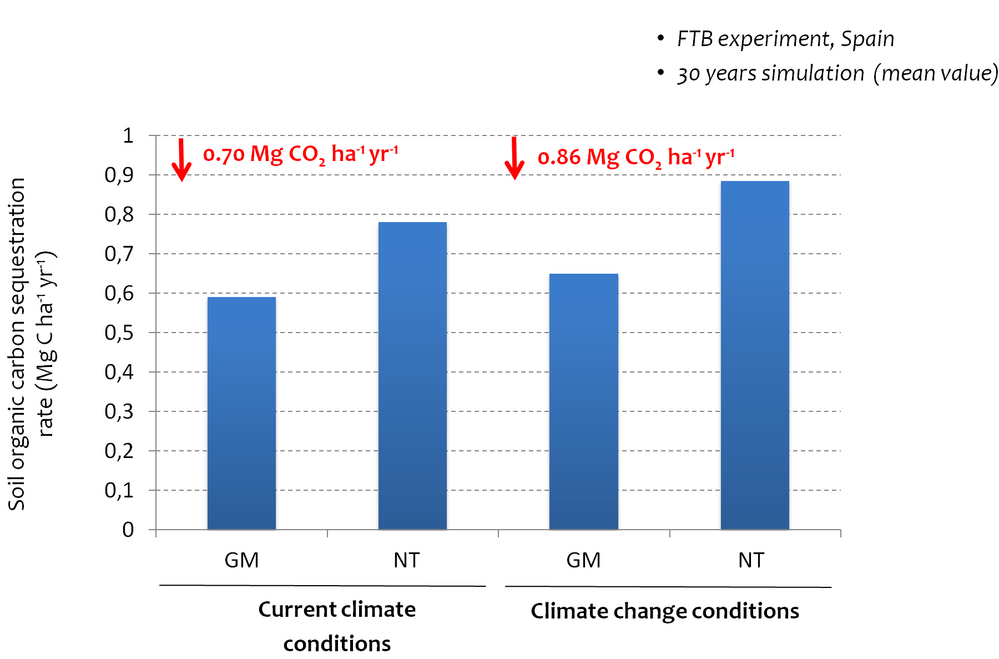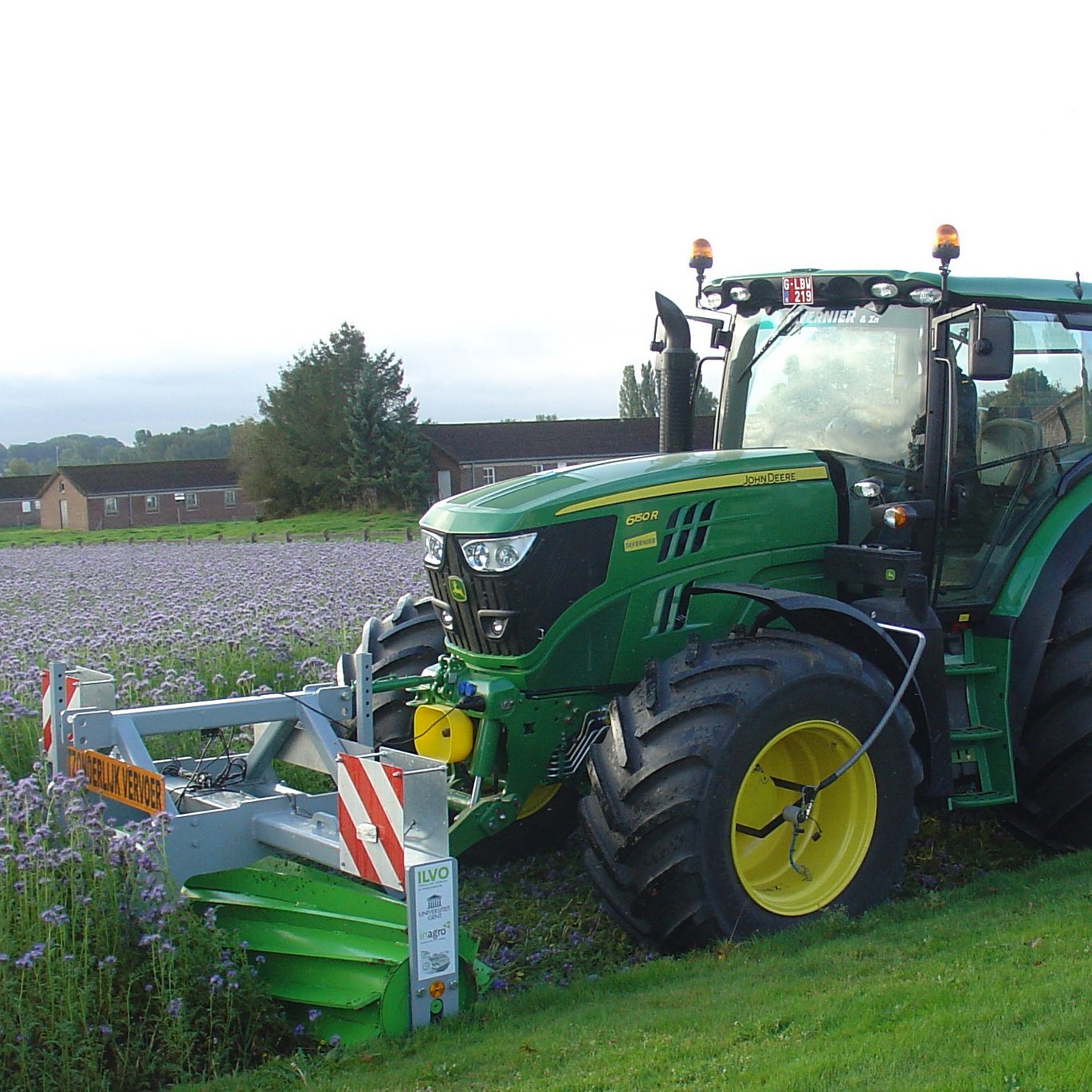SoilVeg is an applied research European project involving 9 European countries and 14 partner institutions for 3 years. It aimed at introducing the no-till technique and at improving the management of agro-ecological Service Crops in organic cropping systems for vegetable production in order to get better soil conservation and resource use.
The ASC crops are often introduced in the agro-ecosystem to provide or enhance ecological services promoting the whole soil-plant system equilibrium. Indeed, ASC introduction have impact on soil quality and fertility and soil nutrients losses and they also contribute to increase soil C sink potential, to mitigate GHG emissions and influence weeds, diseases and pests occurrence.
But what’s the best way to manage ASC? This has been SoilVeg main challenge. Project team has been testing the hypothesis that, compared with the incorporation of ASC into the soil as green manure, the use of the no-till technique, based on the use of the roller crimper reduces nutrient losses from the soil/plant system and GHG soil emission.
This spider graph highlight, at a glance, the difference between the two examined systems - Business As Usual which use ASC as green manure and SoilVeg which utilize the roller crimper in a no till system of management – showing how they score on a variety of indicators. The orange defined area marks the benefits gained by BAU while the green defined area highlights the benefits of using SoilVeg devised management.
As it is clearly showed, SoilVeg management generate an higher overall environment benefit, scoring higher on environment related indicators such as climate change mitigation potential, fossil fuel energy saving, loss of nutrients and overall biodiversity. However, it implies lower yields and lower yield quality.

Simulations have shown how no-tillage contributes to mitigate climate change through Increasing soil carbon sequestration and, at the same time, reducing soil N2O emissions.
Data gained in Spain and elaborated by DayCent over a 30 years simulation predicted a decrease of CO2 emission of 0,70 Mg per ha per year under the current climatic conditions and of 0,86 Mg per ha per year under adverse climate change scenarios and a 10% reduction of soil N2O emissions when comparing no-till with green manure management.

Even when dealing with energy analysis the project reached some crucial points: namely, no-till ASC operations generally require less energy than conventional management through green manure which requires additional chopping and plowing in the soil. If properly set, ASC mulching induced energy saving to weeds control and for irrigation.
Furthermore, it is interesting to note that weed communities changed in function of ASC and termination strategies and that roller crimper treatments reduced weed species richness but also contributed to weed control thanks to weed density reduction. Thus, SoilVeg trials open up the hypothesis of stressing weed contribution to agroecosystem functioning without the need of controlling them.
Moreover, the introduction of ASC with no-tillage seems a good strategy to maintain higher system biodiversity. Roller crimper proved not to be harmful to arthropod populations and proved to promote the conservation of important soil predators. Actually, the use of roller crimper enhanced the presence of important groups of predator arthropods.
On the basis of the results obtained within the SoilVeg Project scientists have identified the next research needs to further implement and to enhance the impact of the no-till tecniques in the organic vegetable systems and these research needs are all focused on how mitigate yield reduction in no-till systems; i.g.
- Identify high biomass production ASC species and cultivars
- ASC proper sowing density
- ASC species and cultivars screening for their attitude to be flattened (in order to get a low regrowth)
- Cash crop density and planting layout
- Cash crop and cultivars attitude to be cultivated in no-till systems
- Plant breeding for no-till (namly, appropriate rooting system)
- Roller crimpers design
- Innovative no-till transplanter design (In-line tillage and ASC root pruning)
Read more at the CORE Organic website: http://www.coreorganic.org/ , find publications from the project at: http://orgprints.org/view/projects/soilveg.html or watch the videos at: https://vimeo.com/234648899 .
Financial support for this project has been provided by funding bodies within the FP7 ERA-Net CORE Organic Plus, and with cofuns from the European Commission.
